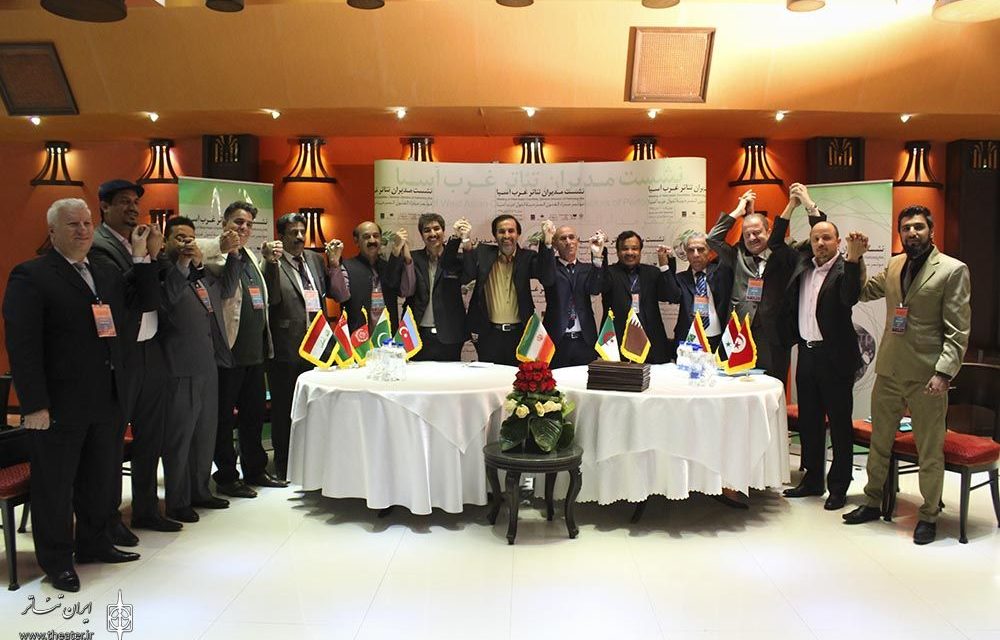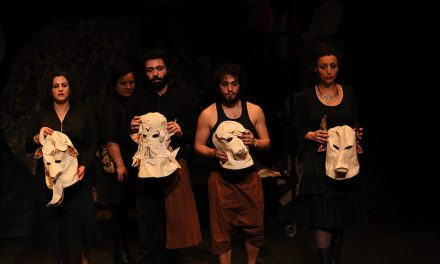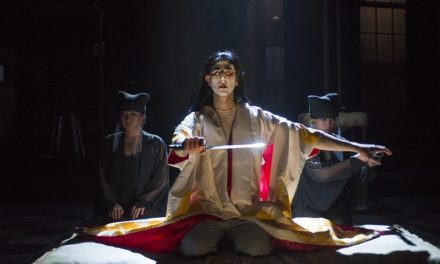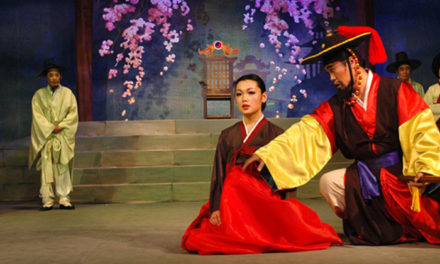From October 30 to November 1, directors of theatre and performing arts from twelve countries of West Asia and North Africa gathered in Tehran, Iran. Iran’s Ministry of Culture and Islamic Guidance and its subdivision Centre for Dramatic Arts were the organizers of this event which is the first of its kind in the region. The purpose of this meeting was to create and foster opportunities for cooperation in producing and hosting theatrical productions. Representatives of ministries, universities and art centers from Iraq, Syria, Russian, Qatar, Azerbaijan, Georgia, Afghanistan, Pakistan, Amman, Lebanon, Tunisia, and Algeria were invited to visit the facilities of Iranian theatre and get familiar with its potentials and talents. Deputy Minister of Ajara Education, Culture and Sports of Georgia Natia Sirabidze, musical theater director Ali Qismat Lalayev from Azerbaijan, Algerian author Ahsan Thalilani, Seyyed Mansour Rahmani, director general of Afghanistan’s National Theater Department, and Sami Nasri from the Center of Dramatic Arts of Tunisia were among the guests at the meeting. Each representative was requested to introduce their national theatre and the cooperative potentials of their theatre.
Among the most important activities in the agenda were exchanging thoughts and policies for developing a relationship between international artists, introducing Iranian educational and artistic potentials, examining the possible fields for producing cross-cultural productions, and preparing a Memorandum of Understanding to establish a permanent, central office of West Asian Theatre.
Ali Moradkhāni, cultural deputy of the Ministry of Culture and Islamic Guidance, proposed the establishment of an international center for the exchange of prominent artistic productions, ILNA reported. The director general of Centre for Dramatic Arts Mehdi Shafiee stated, “Our priorities are creating a chance for our theatre groups to tour internationally and in return, we are eager to host performances of the foreign groups, particularly from the regional nations.”
During these three days, Iranian organizers introduced Iranian most distinguished theatrical activities and organizations to their guests, for instance, Iran Theatre Forum, University Theatre, and Cultural and Artistic Organization of Tehran’s Municipality. Also, the most important Iranian theatre festivals including Fadjr International Theatre Festival, Mobarak Puppet Theatre Festival, Festival of Traditional and Ritualistic Theatre, Children’s Theatre Festival and Marivan Street Theatre Festival were introduced by their respective representatives. During the West Asian managers’ meeting in Tehran, the guests saw performances of Ta’ziyeh (Iranian Passion Play) and Naghāli (Persian epic storytelling), two of the most popular Iranian performance traditions in Golestan Palace, Tehran. The members also appreciated the useful role of Iranian official website in providing to the world the latest news about Iranian theatre (www.irantheater.ir).
Inspired by their commonalities stemming from shared cultural and religious identity, the members of this meeting signed a Memorandum of Understanding. In this Memorandum the members agreed that “theatre is like a common language and a field that can play a major role in developing cooperation and also exchanging positive human values.” Therefore, to improve their society’s theatre culture and also to improve artists’ socio-economic status they agree to establish a permanent centre for development of cultural and economic exchanges and collaborative programs. They decided to create a helpful ground for translation and international touring of their theatrical productions. They also agreed to cooperate in organizing educational programs, short-term and long-term workshops, festivals, and conferences.
In a meeting between representatives of Iraq and Afghanistan with the Head of UNIMA (Union Internationale de la Marionnette) Branch in Iran, the countries agreed to improve the status of puppet theatre in their respective countries in order to preserve their folklore literature and songs, as well as create an opportunity for the children to forget the trauma of war and conflicts.
Given the recent socio-political turmoil of the region, Iranian organizers of this event are very well aware of the significant and critical role of such gatherings in not only counteracting the image media present about the Middle East but also, disseminating a message of peace and humanity throughout the world. Iran and its theatre are prepared to play an effective role in enriching the artistic culture of theatre production, education, and reception in the region.
This post was written by the author in their personal capacity.The opinions expressed in this article are the author’s own and do not reflect the view of The Theatre Times, their staff or collaborators.
This post was written by Marjan Moosavi.
The views expressed here belong to the author and do not necessarily reflect our views and opinions.

















